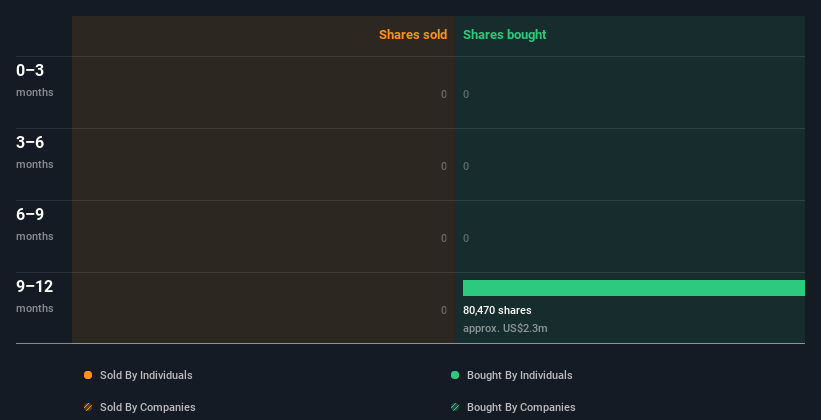Insiders of Chegg, Inc. (NYSE:CHGG) reaped rewards after their US$2.3m investment jumped another US$37k
Last week, Chegg, Inc. (NYSE:CHGG) insiders, who had purchased shares in the previous 12 months were rewarded handsomely. The shares increased by 10.0% last week, resulting in a US$329m increase in the company's market worth. As a result, the stock they originally bought for US$2.3m is now worth US$2.3m.
While insider transactions are not the most important thing when it comes to long-term investing, logic dictates you should pay some attention to whether insiders are buying or selling shares.
See our latest analysis for Chegg
Chegg Insider Transactions Over The Last Year
Over the last year, we can see that the biggest insider purchase was by Independent Director Theodore Schlein for US$1.0m worth of shares, at about US$28.54 per share. That means that an insider was happy to buy shares at around the current price of US$28.90. That means they have been optimistic about the company in the past, though they may have changed their mind. We do always like to see insider buying, but it is worth noting if those purchases were made at well below today's share price, as the discount to value may have narrowed with the rising price. In this case we're pleased to report that the insider purchases were made at close to current prices.
In the last twelve months Chegg insiders were buying shares, but not selling. You can see the insider transactions (by companies and individuals) over the last year depicted in the chart below. If you want to know exactly who sold, for how much, and when, simply click on the graph below!
There are always plenty of stocks that insiders are buying. So if that suits your style you could check each stock one by one or you could take a look at this free list of companies. (Hint: insiders have been buying them).
Insider Ownership Of Chegg
I like to look at how many shares insiders own in a company, to help inform my view of how aligned they are with insiders. Usually, the higher the insider ownership, the more likely it is that insiders will be incentivised to build the company for the long term. Chegg insiders own about US$100m worth of shares. That equates to 2.8% of the company. We've certainly seen higher levels of insider ownership elsewhere, but these holdings are enough to suggest alignment between insiders and the other shareholders.
So What Does This Data Suggest About Chegg Insiders?
There haven't been any insider transactions in the last three months -- that doesn't mean much. But insiders have shown more of an appetite for the stock, over the last year. Insiders own shares in Chegg and we see no evidence to suggest they are worried about the future. In addition to knowing about insider transactions going on, it's beneficial to identify the risks facing Chegg. For example, Chegg has 3 warning signs (and 1 which shouldn't be ignored) we think you should know about.
But note: Chegg may not be the best stock to buy. So take a peek at this free list of interesting companies with high ROE and low debt.
For the purposes of this article, insiders are those individuals who report their transactions to the relevant regulatory body. We currently account for open market transactions and private dispositions, but not derivative transactions.
Have feedback on this article? Concerned about the content? Get in touch with us directly. Alternatively, email editorial-team (at) simplywallst.com.
This article by Simply Wall St is general in nature. We provide commentary based on historical data and analyst forecasts only using an unbiased methodology and our articles are not intended to be financial advice. It does not constitute a recommendation to buy or sell any stock, and does not take account of your objectives, or your financial situation. We aim to bring you long-term focused analysis driven by fundamental data. Note that our analysis may not factor in the latest price-sensitive company announcements or qualitative material. Simply Wall St has no position in any stocks mentioned.
Join A Paid User Research Session
You’ll receive a US$30 Amazon Gift card for 1 hour of your time while helping us build better investing tools for the individual investors like yourself. Sign up here

 Yahoo Finance
Yahoo Finance 
